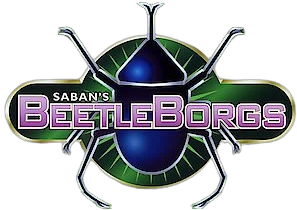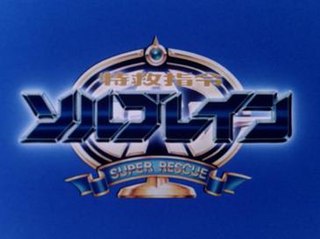 W
WB-Fighter Kabuto is a Japanese television series in the Metal Hero Series franchise. It is the sequel to Juukou B-Fighter, taking place five years after the preceding B-Fighter series. Kabuto aired from 1996 to 1997. The action footage and props were used for the Beetleborgs Metallix series.
 W
WBig Bad Beetleborgs is an American live-action television series by Saban Entertainment and was co-produced with Renaissance-Atlantic Films, Toei Company and Bugboy Productions. Two seasons aired on Fox Kids from September 7, 1996, to March 2, 1998.
 W
WBlue SWAT is the thirteenth installment in the Metal Hero Series franchise. It ran from January 30, 1994 to January 27, 1995 for a total of 51 episodes and one theatrical film, aired as part of the 1994 Manga Matsuri, which compiled episodes 1 and 2. Blue SWAT deviated from the Metal Hero trend by using a realistic vibe for the series instead of fantastic, over-the-top action by focusing on the martial arts and gunplay aspects of the series. While the mood of the series appealed to the genre's adult fanbase and older viewers, the show was not well received by children, which resulted in a change into a lighter tone midway through the series. The Blue SWAT team later appeared for a special team-up in the final episodes of Juukou B-Fighter.
 W
WJuukou B-Fighter , is a 1995 Japanese tokusatsu television series. B-Fighter is short for "Beetle Fighter". It was part of Toei's Metal Hero Series franchise. It dealt with three members of the prestigious Earth Academia fighting against the evil forces of the otherworldly Jamahl Empire. The action footage and props were used for Big Bad Beetleborgs and it has a sequel called B-Fighter Kabuto.
 W
WThe Mobile Cop Jiban is a Japanese tokusatsu television series which serves as the 8th entry in the Metal Hero Series franchise, and the first entry in the Heisei period. It is also the first series to have toy commercials that were filmed on Videotape. Produced by Toei and aired by TV Asahi in Japan from January 29, 1989, to January 28, 1990, it ran for 52 episodes and a feature movie aired on July 17, 1989. According to Toei's International Sales & Promotion Department, the series' English title can be referred to as Jiban.
 W
WSekai Ninja Sen Jiraiya is a Japanese television series that aired on TV Asahi and its affiliates from January 24, 1988, to January 22, 1989, lasting 50 episodes. It was the seventh installment in Toei's Metal Hero Series franchise of live-action superhero shows and the last of the Showa era. The series centers around a young ninja master named Toha Yamaji, who must face against numerous ninja masters from different parts of the world by donning a special armor to become his alter-ego Jiraiya.
 W
WShatterhand is a side-scrolling action game for the Nintendo Entertainment System developed by Natsume and published by Jaleco in North America in 1991 and in Europe in 1992. Shatterhand was originally released by Angel (Bandai) in Japan in 1991 as a licensed game for the Family Computer based on the live-action superhero series Super Rescue Solbrain .
 W
WSpace Sheriff Gavan , also known as Space Cop Gabin, is a Japanese Tokusatsu series produced by Toei Company that aired on TV Asahi from March 5, 1982 to February 25, 1983. The series launched the Metal Hero franchise and was the first installment in the Space Sheriff series.
 W
WSpace Sheriff Sharivan is the second installment in Toei's Metal Hero Series franchise and aired on TV Asahi from March 4, 1983 to February 24, 1984. It served as a direct sequel to its predecessor, Space Sheriff Gavan and featured many of the same characters.
 W
WSpecial Rescue Exceedraft is the last part of the Rescue Police Series trilogy in Toei Company's Metal Hero Series franchise of superhero TV series. It was aired in Japan from February 2, 1992 to January 24, 1993.
 W
WSpecial Rescue Police Winspector is a Japanese tokusatsu TV series, part of the Metal Hero Series franchise and the first piece of the Rescue Police Series trilogy. The series follows the adventures and missions of a special "Rescue Police" team known as Special Police Winspector, as they stop crimes and respond to dangerous events where regular police force is not sufficient. The team is made up of one human and two robotic assistants.
 W
WSuper Hero Operations: Diedal's Ambition is an RPG for the PlayStation that features popular tokusatsu such as Ultraman Gaia and Kamen Rider. It is the only sequel to Super Hero Operations, also for PlayStation.
 W
WSuper Rescue Solbrain is a Japanese tokusatsu television series produced by Toei Company. It ran for 53 episodes from January 20, 1991 to January 26, 1992 on TV Asahi. It is part of the Metal Hero Series franchise; a sequel to Special Rescue Police Winspector, it is the second series in the Rescue Police Series trilogy.
 W
WTokusou Robo Janperson is a 1993 installment in Toei Company's Metal Hero Series franchise. The series revolved around Janperson, a robotic detective who patrolled the streets of Tokyo and fought against three different underworld organizations who used super technology to subjugate the masses. Unlike most Metal Heroes, a monster-of-the-week was rarely shown and most of the villains are criminals akin to television police dramas. The name given to this series by Toei for international distribution is Jumperson.
 W
WVR Troopers is a syndicated live action superhero-adventure television series produced and distributed by Saban Entertainment from 1994 to 1996. The show tried to profit from the fascination with virtual reality in the mid-1990s as well as the success of Saban's other property, Power Rangers. VR Troopers was the first official "sister series" to Mighty Morphin' Power Rangers. Much like it, this was an Americanization of a Japanese tokusatsu children's program series by Toei Company. The series is a co-production of Toei and Cyberprod.
 W
WZaido: Pulis Pangkalawakan is a Philippine television drama science fiction series broadcast by GMA Network. The series is a spin-off of the Japanese Metal Hero series Space Sheriff Shaider. Directed by Dominic Zapata, it stars Dennis Trillo, Marky Cielo and Aljur Abrenica. A special Zaido: Ang Bagong Alamat – The Making of Zaido aired on September 22, 2007. It premiered on September 24, 2007 on the network's Telebabad line up replacing Impostora. The series concluded on February 8, 2008 with a total of 100 episodes. It was replaced by Joaquin Bordado in its timeslot.